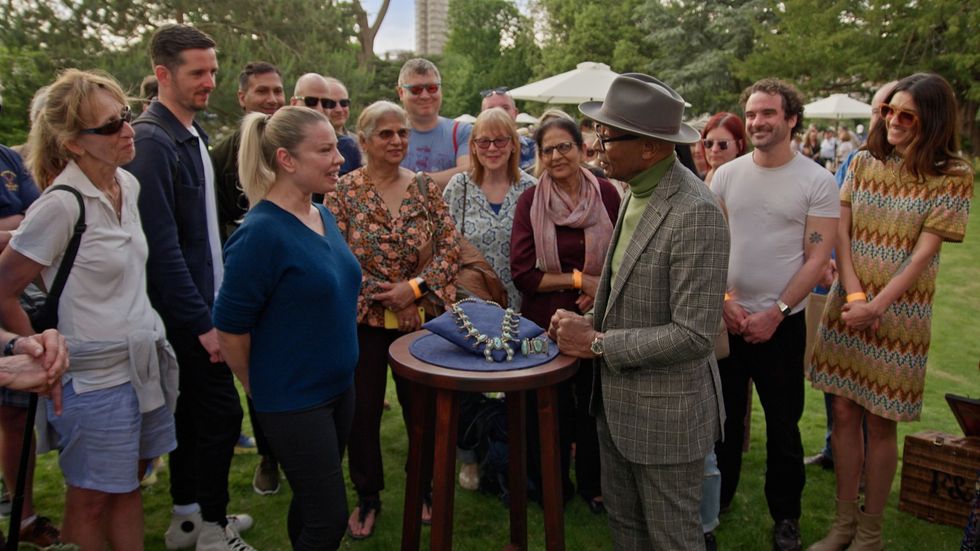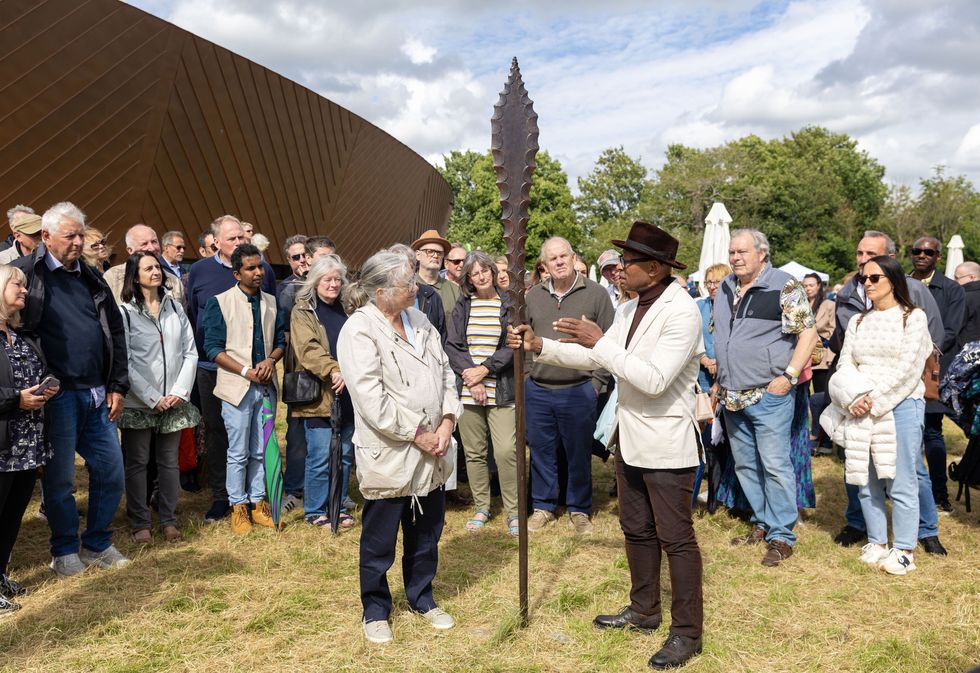Countless Antiques Roadshow experts have become household names, with many of the specialists from the Sunday night staple featuring on the series for decades.
Ronnie Archer-Morgan, 73, has starred in the BBC show since 2011, and specialises in “miscellaneous” items, mainly focusing on tribal art and weaponry.
The antiques expert recently spoke to GB News and opened up on his plans for the future and how long he thinks he’ll remain on the show.
Fans of the presenter will be pleased to know he has no plans to leave the valuation show anytime soon, which he made clear as he explained: “I’ll stay as long as they’ll have me – I hope to find more interesting things to bring the public’s attention.”
Archer-Morgan, as with other hosts of the show, has at times refused to value items based on their controversial origins.
Earlier this year, an episode of the BBC favourite saw Archer-Morgan refusing to value an ancient ivory bangle.

Antiques Roadshow’s Ronnie Archer-Morgan opened up on his future on the show
BBC
He explained to the guest who had brought the item along: “I want to make it absolutely clear that myself and we in the Antiques Roadshow wholly and unequivocally disapprove of the trade in ivory.”
He delved into the history of the item but refused to put a price on it, explaining: “I don’t want to value it. I don’t want to put a price on something that signifies such an awful business.”
Speaking to GB News, Archer-Morgan shared his thoughts on such instances, reiterating why it’s important to distance some items from a financial aspect.
“It happens a lot, with medals – we have to be very careful about it,” he recalled. “We shouldn’t put a monetary value on people’s loss of liberty.

Ronnie Archer-Morgan has starred in Antiques Roadshow since 2011
BBC
“If something came out of a concentration camp or a grant to – I don’t know, commit genocide – was found, a letter giving someone the authority to cause people’s death, you mustn’t put a price on that.
“Even people’s bravery in a way – when people have made sacrifices – this was a warrant for someone to deal in human life.”
On the other side of the coin, there have been valuations the expert has thoroughly enjoyed, such as the item that had a special link to his childhood.
When asked about his favourite valuation, he recalled the incredible moment an event from his childhood came flashing back to him with a pair of famous puppets.
Harry Corbett’s children’s show Sooty and Sweep was popular when Archer-Morgan was young, and he detailed a very special full-circle moment.
He explained to the People’s Channel: “Sooty and Sweep puppets – it was about six years ago. A lady brought a cardboard box to my table.
“I opened it and there were two Sootie and Sweep puppets. I thought, ‘Oh my God, I know these… I have played with these puppets.’
“These were very old and I knew them – they resonated with me. She told me her father had given them when she was five in 1955. Harry Corbett had come to a national children’s home event and gave me those exact puppets!”
The antiques specialist continued: “And 60-odd years later, I was valuing them – that was very significant, and a privilege to experience.”
LATEST DEVELOPMENTS
- Laura Whitmore breaks silence over BBC Strictly probe outcome after Giovanni Pernice complaint: ‘Hope this helps’
- Holly Willoughby sends clear message amid Phillip Schofield TV return as she breaks social media cover
- Phillip Schofield accused of ‘lying again’ for claims ITV axed him over ‘brother’s sex assault conviction’
As part of their current campaign, Action for Children released a new report called A Place to Call Home, which reveals that 91 per cent of adults with care experience in the UK said that they felt lonely and isolated during their time as a child in care – and nearly one in five felt like this all the time.
With more than 83,000 children in care in England, the charity is calling on the new Government to take steps to create new, high-quality homes and boost recruitment and support for carers.
Thankfully, Archer-Morgan had a positive experience in care. He added: “I was in care shortly after the war – all the carers really cared – it was a calling for them,” he reflected.
“Growing up in care saved my life. I wouldn’t be where I am today without the warmth and love from the home that took me in and nurtured me,” the presenter continued.
“I want that for every child in care – this is why I’m here today, campaigning for change because every child, regardless of the lottery of life, deserves to have a safe and happy childhood.”